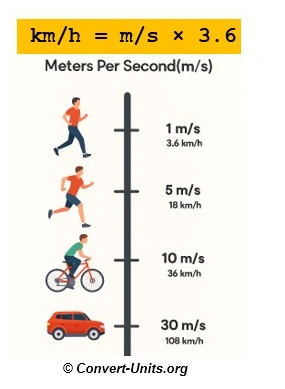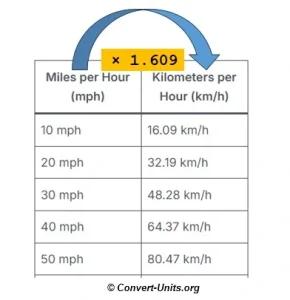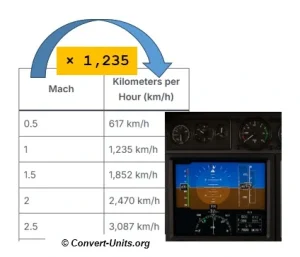
m/s to km/h Conversion Calculator
Click on the following link if you want to convert kilometers per hour to meters per second – km/h to m/s
History
The meter per second (m/s) is the SI base unit of speed, officially recognized in 1960 as part of the metric system. It expresses how many meters are traveled in one second and is the preferred unit in physics and scientific research.
The kilometer per hour (km/h) is more common in everyday life — used for car speeds, cycling, and road limits.
Because there are 1,000 meters in a kilometer and 3,600 seconds in an hour, the conversion factor between them is:
1 m/s = 3.6 km/h
Common Usage
- m/s is used in physics, meteorology, and sports (e.g. wind speed, sprinting).
- km/h is used for vehicle speeds and road traffic.
For example, a person running at 5 m/s is moving at 18 km/h.
Conversion Formula
To convert meters per second to kilometers per hour:
km/h = m/s × 3.6
Example:
Convert 10 m/s to km/h.
10 × 3.6 = 36 km/h
So, 10 meters per second equals 36 kilometers per hour.
Conversion Table
| Meters per Second (m/s) | Kilometers per Hour (km/h) |
|---|---|
| 1 m/s | 3.6 km/h |
| 2 m/s | 7.2 km/h |
| 3 m/s | 10.8 km/h |
| 4 m/s | 14.4 km/h |
| 5 m/s | 18.0 km/h |
| 10 m/s | 36.0 km/h |
| 15 m/s | 54.0 km/h |
| 20 m/s | 72.0 km/h |
| 25 m/s | 90.0 km/h |
| 30 m/s | 108.0 km/h |
Interesting Facts
- Usain Bolt’s top speed during his 100m world record was about 12.4 m/s (44.6 km/h).
- Hurricane-force winds begin at roughly 33 m/s (120 km/h).
- Many scientific instruments measure wind or flow speeds in m/s because it’s the SI standard.
Frequently Asked Questions
1. How many km/h are in one m/s?
3.6 km/h.
2. How do I convert m/s to km/h?
Multiply by 3.6.
3. Why use m/s instead of km/h?
Because it’s the base SI unit and works better for scientific calculations.
4. Is m/s used in everyday life?
Yes, for wind speeds, physics, and engineering.
5. How fast is 10 m/s in km/h?
36 km/h.



